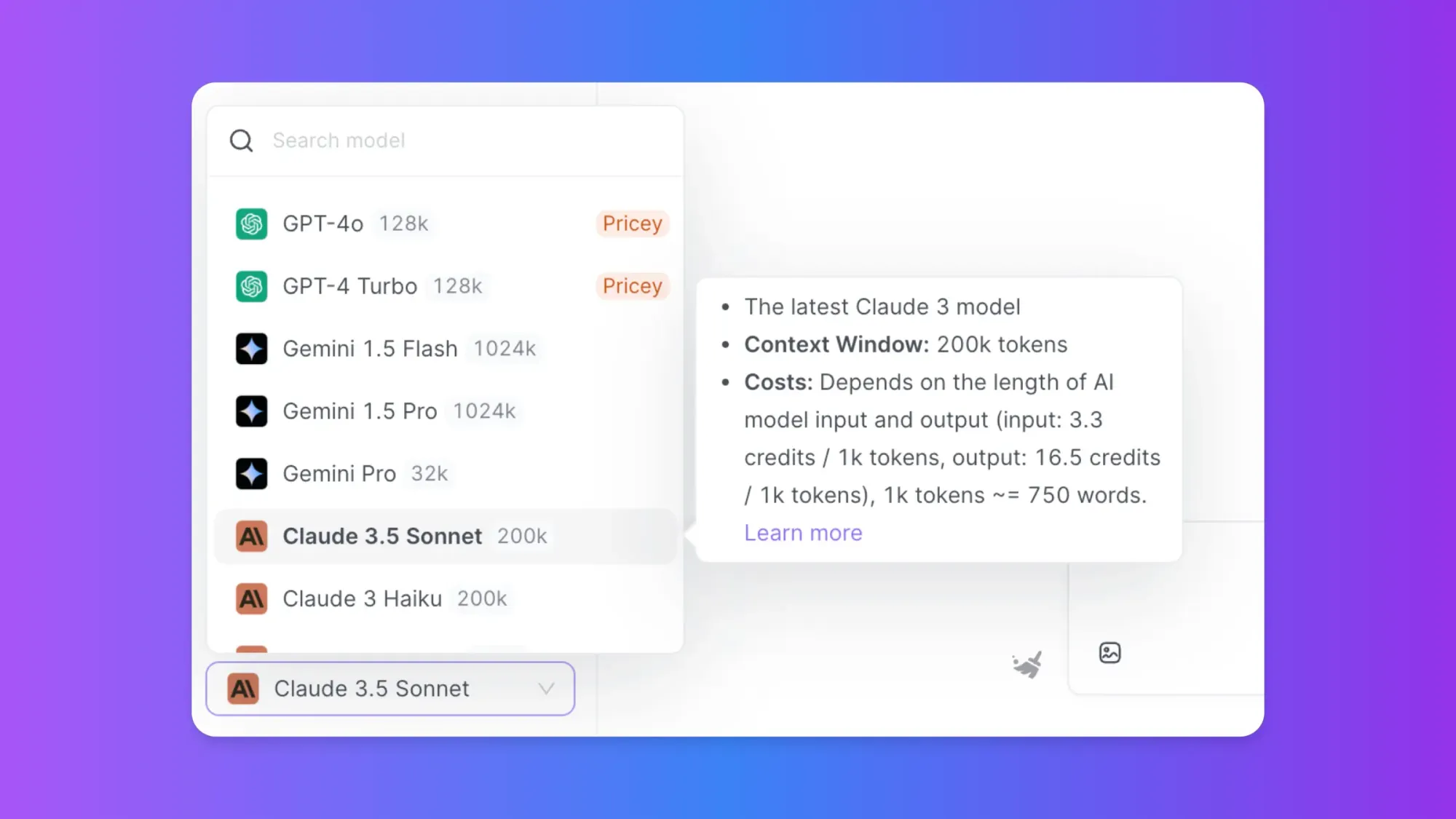Phi-4 is the newest addition to Microsoft's series of small language models, designed to excel in complex reasoning tasks, particularly in mathematical problem-solving. This model is part of the Phi family and represents a significant advancement in the field of artificial intelligence (AI), especially in balancing model size and performance.
Searching for an AI Platform that gives you access to any AI Model with an All-in-One price tag?
Then, You cannot miss out Anakin AI!
Anakin AI is an all-in-one platform for all your workflow automation, create powerful AI App with an easy-to-use No Code App Builder, with Llama 3, Claude, GPT-4, Uncensored LLMs, Stable Diffusion...
Build Your Dream AI App within minutes, not weeks with Anakin AI!

Key Features of Phi-4
Phi-4 is a state-of-the-art small language model (SLM) with 14 billion parameters. Despite its relatively compact size, it delivers high-quality results, making it an efficient choice for tasks that require complex reasoning. Here are some of the standout features of Phi-4:
- Complex Reasoning: Phi-4 is specifically optimized for complex reasoning tasks, which include mathematical problem-solving and conventional language processing.
- Efficiency: With its 14 billion parameters, Phi-4 offers a balance between model size and computational efficiency, providing high performance without the need for extensive computational resources.
- High-Quality Data Utilization: The model benefits from high-quality synthetic datasets and curated organic data, enhancing its reasoning capabilities.
- Post-training Innovations: These innovations contribute to Phi-4's superior performance compared to other models of similar or larger sizes.
Phi-4's Technical Advancements Over Previous Models

Phi-4 builds on the foundations laid by its predecessors in the Phi series, such as Phi-3.5-mini. It incorporates several technical advancements that enhance its performance:
- Improved Data Handling: The use of both synthetic and organic datasets allows for better generalization and accuracy in problem-solving.
- Enhanced Training Techniques: Innovations in training methodologies have been implemented to improve the model's ability to handle complex reasoning tasks.
- Benchmark Performance: Phi-4 has demonstrated superior performance in benchmarks related to math competition problems, outperforming even larger models.
Comparison of Phi-4 with Other Language Models

Phi models, including Phi-4, are designed with specific strengths that differentiate them from other popular language models like GPT (Generative Pre-trained Transformer) and Claude. Here's how they compare:
| Feature | Phi Models | GPT Models | Claude Models |
|---|---|---|---|
| Size Efficiency | Smaller with high efficiency | Larger with extensive resources | Varies by version |
| Complex Reasoning | Strong focus on math and logic | General-purpose language tasks | Strong contextual memory |
| Data Handling | Uses curated datasets | Large-scale pre-training data | Efficient data handling |
| Performance | Excels in specific benchmarks | Generally high across tasks | Superior in coding tasks |
Advantages of Phi-4 Over Previous Models
Phi-4 offers several improvements over previous iterations in the Phi series:
- Enhanced Reasoning Capabilities: It surpasses previous models in handling complex mathematical problems.
- Better Data Utilization: The integration of high-quality data sources improves its accuracy and reliability.
- Innovative Safety Features: Microsoft has incorporated robust AI safety measures into Phi-4, ensuring responsible use and minimizing risks associated with AI deployment.
Applications and Availability
Phi-4 is available on Azure AI Foundry under a Microsoft Research License Agreement (MSRLA) and will soon be accessible on platforms like Hugging Face. Its applications span various domains where complex reasoning is essential, including academic research, business analytics, and advanced data interpretation.
Detailed Technical Insights from Phi-4

Model Architecture
Phi-4's architecture is designed to optimize both computational efficiency and performance. It employs a transformer-based architecture, which is standard for many modern language models but optimized for smaller parameter counts without sacrificing capability. This involves:
- Layer Optimization: Fewer layers compared to larger models like GPT but with enhanced attention mechanisms.
- Parameter Efficiency: Strategic parameter allocation ensures that each parameter contributes maximally to task performance.
Training Methodologies
The training process for Phi-4 involves several innovative techniques:
- Curriculum Learning: Tasks are introduced progressively from simple to complex, allowing the model to build foundational understanding before tackling more difficult problems.
- Data Augmentation: Synthetic data generation techniques are used to create diverse training scenarios that enhance the model's adaptability.
- Transfer Learning Enhancements: Leveraging knowledge from previous iterations in the Phi series allows for refined learning processes.
Post-training Enhancements
Post-training techniques play a crucial role in refining Phi-4's capabilities:
- Fine-tuning on Specific Tasks: Tailoring the model for particular applications enhances its accuracy and relevance.
- Safety Filters Implementation: Post-training safety mechanisms ensure ethical use by filtering potentially harmful outputs.
How Phi Models Differ From Other AI Models
Phi models are distinct from other AI models like GPT and Claude due to their specialized focus and design philosophy:
- Specialized Task Focus: While GPT models are generalists capable of performing a wide range of tasks, Phi models are tailored for specific domains such as mathematics and logic.
- Compact Design Philosophy: The emphasis on smaller model sizes means that Phi models can be deployed more easily across various platforms without requiring extensive computational resources.
- Ethical AI Implementation: Microsoft places a strong emphasis on ethical considerations, integrating safety features that prevent misuse.
Future Prospects and Developments
The development of Phi-4 marks a significant milestone in AI research at Microsoft, but it also sets the stage for future advancements:
- Expanding Application Domains: Future iterations may expand beyond mathematics into other areas requiring complex reasoning such as scientific research or legal analysis.
- Integration with Other Technologies: Combining Phi models with other AI technologies could lead to more comprehensive solutions across industries.
- Continuous Improvement Cycle: Ongoing research will likely focus on further optimizing efficiency while expanding capabilities.
Conclusion
Phi-4 represents a significant step forward in small language model development, offering enhanced capabilities in complex reasoning while maintaining efficiency. Its advancements make it a valuable tool for organizations seeking powerful AI solutions without the need for extensive computational resources. As AI continues to evolve, models like Phi-4 demonstrate the potential for innovation within compact frameworks, pushing the boundaries of what small language models can achieve.
This expanded article should provide a more detailed overview of Phi-4 while addressing your request for additional information about its technical details and comparisons with other models.



